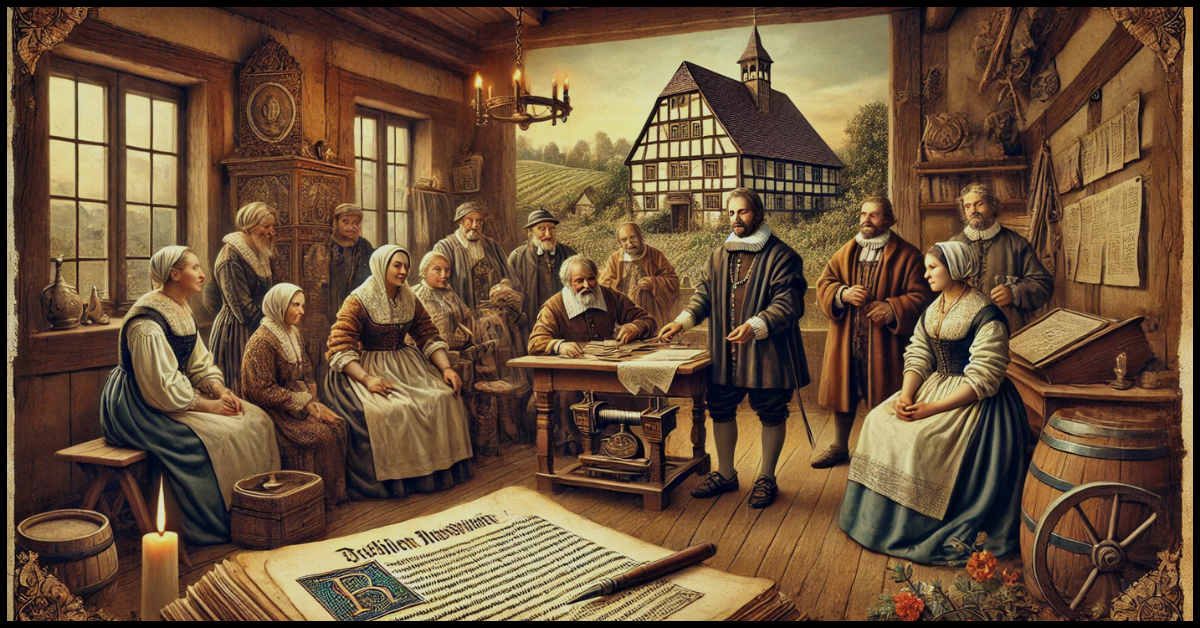Introduction to Heinrich Servais Germany 1555 Genealogy
Genealogy is a fascinating field that allows us to delve into the lives of our ancestors, uncovering the stories that shaped their world and ours. One such intriguing figure is Heinrich Servais Germany 1555 Genealogy, whose legacy has sparked interest among genealogists and historians alike. As we explore Heinrich Servais’s roots, we open a window into the rich history of 16th-century Germany and its people.
In this article, we will trace Heinrich Servais Germany 1555 Genealogy, shedding light on his ancestry, family lineage, and the broader historical context of Germany during his time whether you’re interested in your German roots or simply fascinated by historical figures, this journey through the past offers valuable insights.
The Life and Times of Heinrich Servais
Germany in 1555: A Historical Overview
To understand Heinrich Servais and his genealogy, it’s essential to first consider the historical backdrop of Germany in 1555. This period was marked by significant religious and political upheaval. The signing of the Peace of Augsburg in 1555 ended the spiritual conflict between Protestants and Catholics in the Holy Roman Empire, allowing rulers to choose the religion of their territory.
During this time, Germany was a patchwork of small principalities and free cities, each with local governance. The Reformation, initiated by Martin Luther earlier in the century, had spread across the region, influencing religion and social and political life.
In this context, the Servais family, like many others, would have experienced the effects of these monumental shifts. Religious affiliations, local governance, and shifting allegiances would have played a significant role in shaping the lives and decisions of individuals like Heinrich Servais.
Heinrich Servais: Early Life and Family Background
Heinrich Servais was born into a time of change, and his family’s position within the fabric of German society offers a glimpse into the life of the average 16th-century German citizen. While specific records on Heinrich’s early life are limited, what is known suggests that the Servais family had roots in the Rhineland region, a historically significant area known for its trade, agriculture, and political influence.
The Servais family, potentially of Flemish origin, could have been part of the wave of migration that moved through Germany during the 16th century, wildly as many Flemish families fled religious persecution. Like many families at the time, Heinrich’s genealogy might show a blend of artisan, merchant, or landowning backgrounds, which were common occupations among middle-class Germans during this era.
Exploring Heinrich Servais’ Genealogy
The Servais Family Lineage
The Servais surname hints at a French or Flemish origin, indicating that Heinrich’s ancestors may have migrated to Germany from neighboring regions. This was not uncommon, as many families moved due to economic opportunities, political alliances, or religious conflicts.
Genealogists typically begin tracing Heinrich Servais’ genealogy by examining church records, birth certificates, and marriage registries. 1555, Germany had just started recording such vital information, making it a valuable resource for understanding the familial ties and movements of historical figures like Heinrich. His family tree might include individuals involved in local guilds, trade associations, or religious communities.
Key Genealogical Records
Records from the Rhineland region in the mid-1500s suggest that the Servais family may have been connected to local parishes or municipalities, where they would have participated in town life. Baptismal church records provide insight into family relationships, often showing extended family networks that helped sustain households during turbulent times.
Heinrich Servais’ marriage and children’s birth records, if accessible, would provide a fuller picture of his direct descendants. Many Germans during this period married within their local community or nearby regions, keeping family ties strong and ensuring that property and wealth were passed down through generations.
The Servais Family Legacy
Contributions to Local Society
While Heinrich Servais may not have been a nationally known figure, his contributions to local German society would have shaped the daily life of his family and community. As part of the 16th-century middle class, the Servais family likely played a role in local commerce, agriculture, or craft production.
The family’s religious affiliation may also have been significant. Given the religious tensions of the time, whether the Servais family aligned with Protestantism or Catholicism would have influenced their social standing, relationships, and even their landholdings.
Migration Patterns and Family Expansion
One notable aspect of German genealogy in the 16th century is the migration patterns that affected families like the Servais. The Thirty Years’ War, which erupted a few decades after Heinrich’s time, prompted many German families to migrate, either within the country or to other parts of Europe. The Servais family may have expanded beyond the Rhineland, with descendants moving to different parts of Germany, the Netherlands, or Switzerland.
These migrations spread the family name across regions, and today, individuals tracing their Servais ancestry might find links to various parts of Europe.
Heinrich Servais and the Broader German Genealogical Context
Common Genealogical Challenges
Researching the genealogy of figures like Heinrich Servais presents unique challenges. The limited availability of records from the 1500s means that genealogists must rely on church records, land registries, and historical documents to piece together a family’s story. In addition, names and spellings may have changed over time, complicating the search for accurate information.
Despite these challenges, modern genealogical tools such as DNA testing and online archives have made it easier for descendants of the Servais family and other German families to trace their lineage to historical figures like Heinrich.
The Importance of Historical Context
Understanding Heinrich Servais’ genealogy also requires a deep understanding of the historical events that shaped his life. Religious reforms, political power struggles, and societal changes in Germany during the 16th century all influenced the lives of everyday citizens. Like many others, the Servais family navigated these changes while contributing to the development of their local community and, by extension, the broader history of Germany.
FAQs
Who was Heinrich Servais?
Heinrich Servais was a German citizen born in 1555. He was likely part of a middle-class family in the Rhineland region. His family may have had French or Flemish origins and played a role in local commerce or trade during a time of significant political and religious change in Germany.
What records are available to trace Heinrich Servais’ genealogy?
Church records, baptismal certificates, marriage registries, and land documents are key resources for tracing Heinrich Servais’s genealogy. While records from the 1500s are limited, they provide valuable insight into family relationships and movements.
Why is 1555 significant in German history?
1555 marked the signing of the Peace of Augsburg, which allowed rulers within the Holy Roman Empire to choose between Catholicism and Protestantism as the official religion of their territory. This profoundly impacted German society, shaping religious and political allegiances.
What challenges exist in researching German genealogy from the 1500s?
Genealogical research from the 1500s is challenging due to the scarcity of records, name variations over time, and the impact of historical events like wars and migrations. However, modern tools like DNA testing and online databases have improved access to genealogical information.
What is the Servais family’s likely origin?
The Servais family name suggests French or Flemish origins, indicating possible migration into Germany. Many Flemish families moved to Germany during the 16th century for religious or economic reasons.
How can I trace my German ancestry back to the 1500s?
To trace your German ancestry, begin with church and civil records from your ancestors’ region. Modern tools such as DNA testing, genealogical websites, and historical archives can help you build a family tree and connect with other descendants.
Conclusion
The genealogy of Heinrich Servais offers a fascinating glimpse into 16th-century Germany and the people who lived through its social, political, and religious transformations. Tracing his lineage not only helps us understand one family’s history but also sheds light on the broader tapestry of German history. Through a combination of historical records and modern genealogical methods, descendants of Heinrich Servais and others from this era can continue to uncover their roots and connect with their past.










